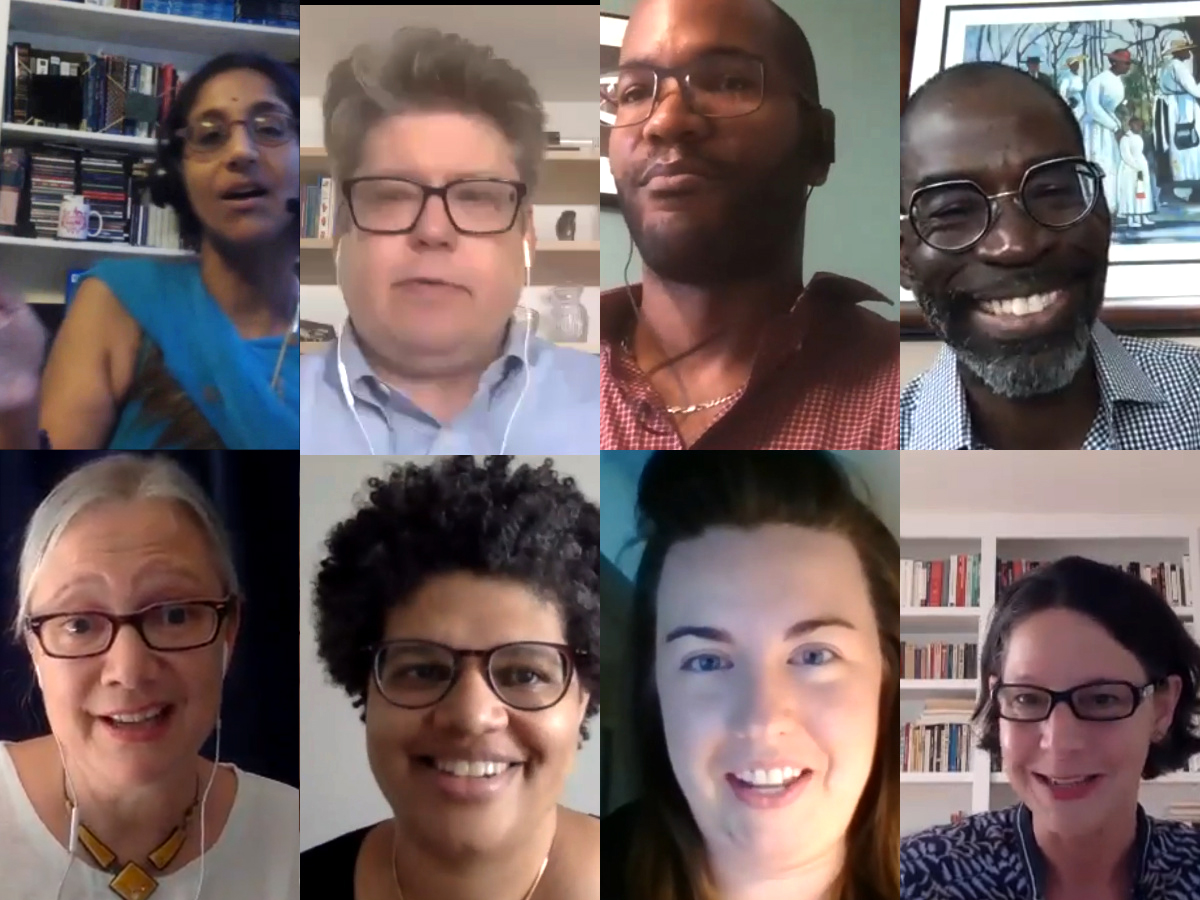Professor Launches Series to Pivot Graduate Student Research
August 20, 2020

English Chair Amanda Bailey partners with Folger Institute to connect students through a new event series.
By Rosie Grant
For graduate students, the COVID-19 pandemic has presented a significant challenge—how can they conduct their research when many libraries and archives are closed and thesis deadlines loom?
Amanda Bailey, chair and professor of the University of Maryland Department of English, heard from students posing this question in her role as a member of the Folger Institute Consortium Executive Committee, an organization working to advance research and teaching in the humanities. Students also voiced feelings of isolation and a desire for connection with fellow scholars.
To address graduate students’ growing concerns, Bailey partnered with fellow committee member Professor Holly Dugan from The George Washington University to propose a virtual Pivot Series to help students navigate research and writing during the pandemic. They worked with Dr. Owen Williams, Associate Director of Scholarly Programs at the Folger Institute, to coordinate a four-session series open to all Folger Institute Consortium graduate students across the U.S. and U.K. Bailey and Dugan focused on coordinating speakers and themes for the series while Williams worked on the event logistics.
In the midst of planning, racial and social injustice came to the forefront of the world’s consciousness. The team saw this as another opportunity for students to pivot their research to include socially responsive research methods in their work.
"This moment of crisis is also one of opportunity,” Bailey said. “Those in the dissertation-writing phase are now free to pivot and think in new ways about the exegesis, scope, audience, relevance, structure and pace of research and writing.”
While planning the events’ logistics, Williams viewed the series as a way to give graduate students tools like new scholarly networks and make sure they understood they were not alone.
“We wanted to give them a community in the time of COVID-19,” Williams said. “The Pivot Series allows students a chance to collaborate and make connections.”
The series has seen a wave of interest and support with 25 universities registered and over 70 participants in each of the sessions. From Maryland, participants span across disciplines in the humanities, including English, history, art history and foreign languages.
The first session on July 30, 2020, featured Dr. Reginald Wilburn from the University of New Hampshire to discuss strategies of resilience in academia.
“It was wonderful seeing so many graduate students on the call and so many of us working toward the same goals of trying to finish our dissertations in these troubling times,” said April Fuller, a UMD Ph.D. candidate in 18th-century British literature. “I was thankful for Dr. Wilburn speaking to us so honestly about how he copes with writing during this pandemic. On days when I can't write, I give myself a break.”
Bailey hopes that the series will not only benefit students in their quarantine research methods, but also empower future flexibility in their scholarship.
“These experiences will indelibly mark an entire cohort of humanists,” said Bailey. “I hope the resources and community-building from these sessions continue beyond the pandemic.”
For more information, visit the Folger Institute's Consortium.
Pictured from: Sujata Iyengar top-left, Owen Williams top-middle, Miles Grier top-middle, Reginald Wilburn top-right.
Holly Dugan bottom-left, Patricia Akhimie bottom-middle, Rachel Dankert mottom-middle, Amanda Bailey bottom-right.

